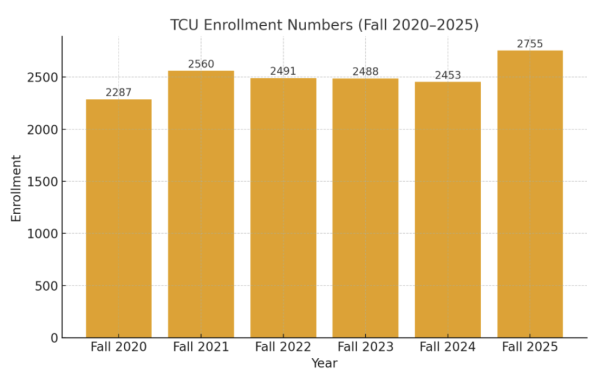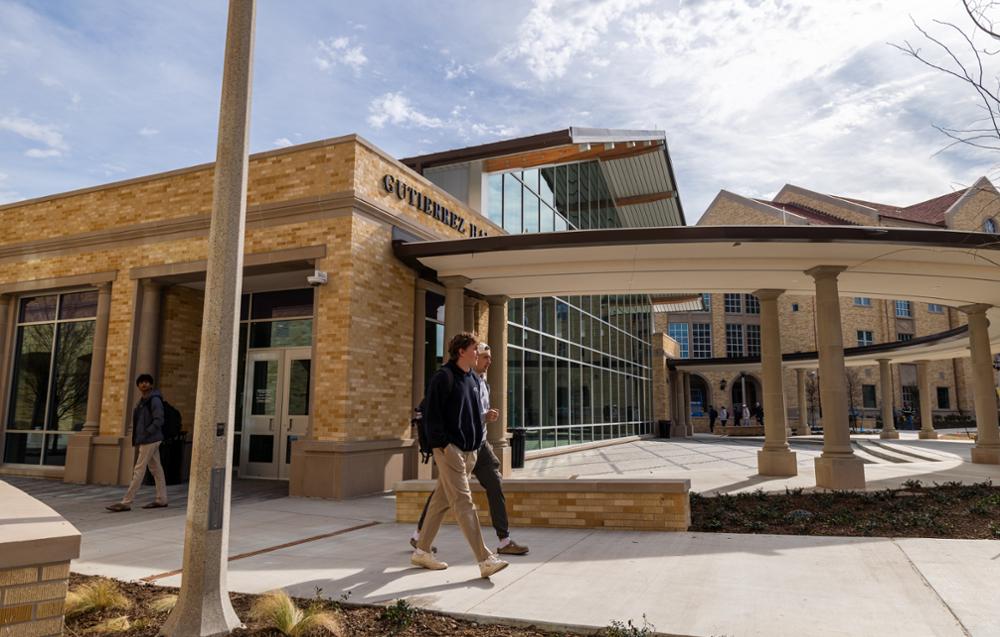TCU saw a jump in first-year enrollment this fall with 2,755 Horned Frogs, the first significant bump since 2021 when first-year enrollment hit 2,560 students.
The increase is part of TCU’s long-term strategy to grow enrollment to as many as 15,000 students by 2034. The boost comes as TCU is experiencing growing pains in housing and parking. With a 12.3% increase in first-year students compared to last year, forced triple housing is rising.
“While there is some discomfort and a little bit of growing pains, in five years as an alumnus, you’re going to say ‘I went to TCU!’” said Craig Allen, Executive Director for Housing & Residence Life and Fraternity & Sorority Life. “People aren’t going to say, ‘How long did it take to get to your car?’ They are going to say, ‘Wow! That campus is amazing!’ because it is.”
Still, growing enrollment further squeezes TCU’s already tight housing situation.
Each additional student in a forced triple affects two roommates as well, meaning three students share a space designed for two. As of the fall 2025 semester, there are 137 more students, meaning 411 students are in forced triples this year, Allen said. That’s more than the bed space added by Hill and Walsh hall going online last spring.

“The challenge for us is we can’t just put up a building like that,” Allen said. “Hill and Walsh were two years in the planning and another two for construction.”
Located by the Neeley School of Business, Hill and Walsh Hall are first-year, co-ed dorms that host 292 residents, according to TCU Housing and Residence Life.
“In a broader sense, having more students, even though we didn’t add any extra RAs, means that our student-staff and hall director have a few more people to keep an eye on than they might’ve otherwise had,” Allen said.
The industry standard for double occupancy rooms and first-year students is a 1-25 ratio and a 1-28 ratio for student-staff to students. TCU holds close to that ratio because of the personal relationship student-staff members have with their students.
TCU stands out against other institutions because of the way that housing is geared, Allen said.
The model is catered to knowing the students and making sure they don’t feel alone or isolated, Allen said. TCU requires most first-year students and sophomores to live in campus housing.
This is done in numerous ways, but TCU is able to do this better than most institutions “because of the intentional ways we do it,” Allen said.
Allen has been at TCU for 20 years and witnessed the development of the Campus Commons and the redevelopment of Worth Hills.
“When all the construction is done, it only increases the value of the institution; it only makes your degree more noticeable,” he said. “People hear about TCU everywhere.”




